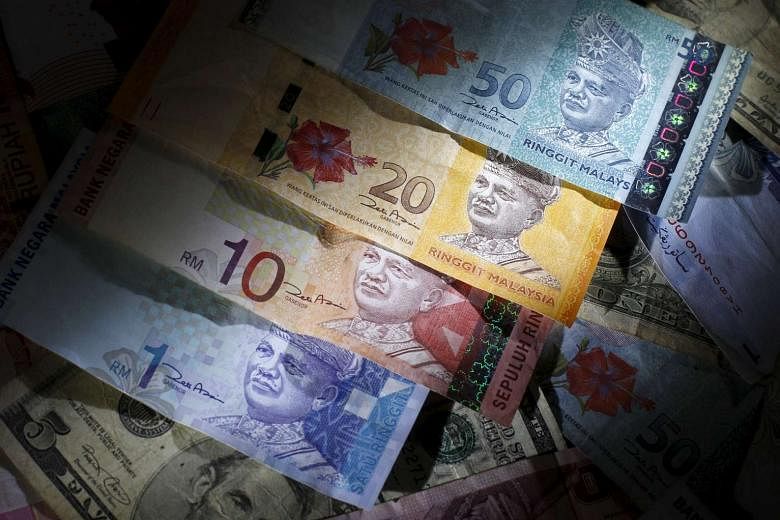KUALA LUMPUR (BLOOMBERG) - The ringgit fell to a six-week low amid risk aversion after the Paris terror attacks and concern Malaysia's economy will keep slowing.
Gross domestic product increased the least in more than two years last quarter, a report showed on Friday (Nov 13), and Credit Suisse Group sees a further moderation as the sliding ringgit and a goods and services tax hurt consumption. Brent crude dropped the most in eight months last week, adding to the woes of the net oil exporter.
"Risk aversion, growth concerns from last week's gross domestic product data and a fall in oil prices are reasons for the ringgit weakness," said Mr Saktiandi Supaat, head of foreign- exchange research at Malayan Banking Bhd in Singapore. "The Paris attack damps market risk appetite."
The ringgit declined 0.4 per cent to 4.3905 per US dollar as of 9.51am in Kuala Lumpur, according to prices from local banks compiled by Bloomberg. It dropped to 4.4005 earlier, the weakest level since Oct 5, and has lost 2.1 per cent this month.
Against the Singapore currency, the ringgit weakened to 3.0822 to one Singdollar as of 10:53 am from its close of 3.0763 on Friday.
The ringgit's 20 per cent slide in 2015 is the worst among emerging markets after Brazil's real and Colombia's peso.
Overseas investors sold a net RM714 million of Malaysian shares last week, according to a report from MIDF Amanah Investment Bank released on Monday (Nov 16). That took outflows this year to RM18.2 billion, compared with RM6.9 billion for the whole of 2014.
Malaysia's economy expanded 4.7 per cent in the third quarter from a year earlier, the least since the three months through June 2013. The domestic economy is expected to remain resilient, Bank Negara Malaysia Governor Zeti Akhtar Aziz told reporters after the GDP data were released. The ringgit remains "significantly undervalued" and risks to growth are unlikely to materialise as exports are still strong, she said in an interview in Kuwait last week.
Government bonds fell, pushing the five-year yield up one basis point to 3.79 per cent, according to prices from Bursa Malaysia. The 10-year yield rose one basis point to 4.35 per cent.

